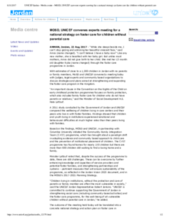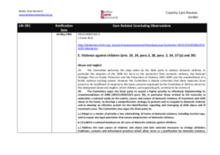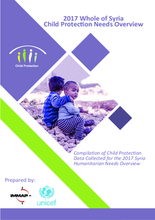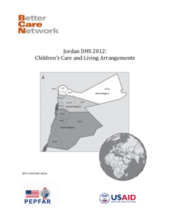childrens_living_arrangement
children_living_without_bio
Displaying 21 - 30 of 42
Government institutions and civil society representatives in Jordan have launched a three-year national strategy and action plan aimed at reducing physical violence against children in Jordan at a meeting convened by the National Council for Family Affairs and UNICEF.
MoSD and UNICEF convened a meeting with judges, legal experts and community-based organizations to discuss strategies and plans for moving away from institutional care and strengthening Jordan's foster care system.
This country care review includes the care-related Concluding Observations adopted by the Committee on the Rights of Persons with Disabilities and the Committee on the Rights of the Child as part of their examinations of the periodic reports of Jordan.
The International Rescue Committee (IRC) responds to the world’s worst humanitarian crises and helps people to survive and rebuild their lives.
This document provides analysis of child protection needs and risks at the government level to support child protection actors in programmed development, resource mobilasation and advocacy.
This country brief provides an overview of data on children’s living arrangements in Jordan, extracted from the 2012 DHS survey.
This study is a retrospective discussion of the experiences faced by young Jordanian adults who grew up in residential care before entering adult life. These young adults use their life experiences to demonstrate the challenges that people exiting residential care face. Per this chapter, post-care experience is influenced by in-care experience.
Organisée par le Bureau Permanent de la Haye, une formation internationale a eu lieu les 8 et 9 Décembre 2015 en Jordanie. 45 Experts ont échangé à propos de la pertinence d'un certain nombre de conventions de la Haye concernant la région du Moyen-Orient Afrique du Nord.
Using empirical data and interviews with orphans in Jordan, this article investigates how they experience the patriarchy of law, society, and the state.
The overall objective of this research was to increase understanding of kinship care practices as experienced by Syrian refugee children and caregivers in Jordan, which can be used to inform programming and policy developments on children’s care and protection in a humanitarian context.





